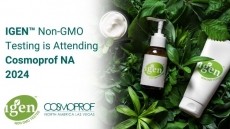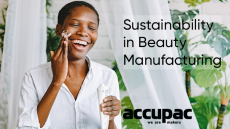Advocacy group Safer Chemicals, Healthy Families rates toxic retailers

2017 is only the second year that the consumer advocacy group has rated retailers in this way. The group’s report, Who’s Minding the Store? -- A Report Card on Retailer Actions to Eliminate Toxic Chemicals purports to rate stores based on their efforts to limit or regulate “toxic chemicals in consumer products,” according to a media release.
Soon, “many of us will be heading to our favorite retailers to shop for holiday gifts,” notes Mike Schade, Mind the Store Campaign Director at Safer Chemicals, Healthy Families, in the release.
He goes on to explain the purpose of the report he authored, saying, “Toxic chemicals are hiding in everyday products all around us, from cosmetics to baby toys and electronics. The new report card can help consumers understand which retailers are leading and which are lagging on tackling toxic chemicals this holiday season.” The whole thing also seems to be an effort to shame retailers in to helping advance the group’s own agenda: “We hope the laggards will step up and give us the gift of a toxic-free future,” adds Schade.
Report Card grades
Safer Chemicals, Healthy Families graded 30 retailers. Sephora was given a D grade. Ulta Beauty received a D-, as did the Macy’s / Bloomingdales / Blue Mercury chains. Sally Beauty was given an F grade. Other retailers the group designated as failing include Walgreens and RiteAid.
The group gives a snapshot of its grading for each retailer. For instance, the page on Sephora explains, “On the positive side, they have an extensive Restricted Substances List (RSL) for their private label products, which, according to information provided by the company, includes all but two of the Hazardous 100+ chemicals identified by Mind the Store. In fact, their RSL, which Sephora stated contained over 1,400 compounds, has been in place for a decade. Unfortunately, Sephora does not make its RSL publicly available, nor does it provide public metrics on the use or reduction of chemicals of concern. Sephora also does not appear to apply restrictions on the use of chemicals in products it sells from other brands.”
Retailers that the Safer Chemicals, Healthy Families group scored more favorably include Walmart with an A-, CVS with a B+, Whole Foods with a B+, and Target was also given a B+ grade.
Retailer chemical policies
Natural, organic, and ingredient limiting product labeling standards are commonplace now, coming from brands, retailers, and certification groups.
And some retailers make regular updates to their ingredient policies. Just last month, as Cosmetics Design reported, Walmart updated its chemical ingredient policy for cosmetics and skin care, among other goods.
Even more recently, Costco teamed up with the Berkeley Center for Green Chemistry as part of the warehouse retailer’s efforts to limit so-called chemicals from concern in personal care products and other items sold in the store, as well as to limit those chemicals and ingredients along the supply chain.
Of course, Whole Foods' labeling standards are longstanding. And other prominent chain stores with beauty departments like Target and CVS have chemical guidelines that delineate ingredients that personal care and cosmetics products sold on their store shelves and websites cannot contain.
















